“LI XI” OR LUCKY MONEY IN VIETNAMESE CULTURE
Every Vietnamese loves and cherishes this custom, especially children, who always expect to receive Li Xi – lucky money on traditional Tet Holiday. Lunar New Year (or Tet Holiday in Vietnamese) is a typical cultural feature in most of Asian countries, including Vietnam. This is the most important holiday in the year of Vietnamese, associated with a range of traditions and customs, related to praying for good things for the upcoming year. Among them, giving and receiving lucky money during Tet Holiday is one of the most anticipated Tet customs, which has been preserved over time and become indispensable in Vietnamese people’s life whenever the Lunar New Year Festival comes.
What is “Li Xi” or Lucky Money?
Lucky Money is called “Li Xi” in Vietnamese and originated from the Chinese words “lì shì” which means “lucky”. Traditionally, the Lucky Money is a small amount of money put in a red envelop then is given to children as a wish of luck, health and good things will come to them in the Lunar New Year. The “Lucky Money” inside is traditionally new brand and low face value but symbolizes for growh and success.
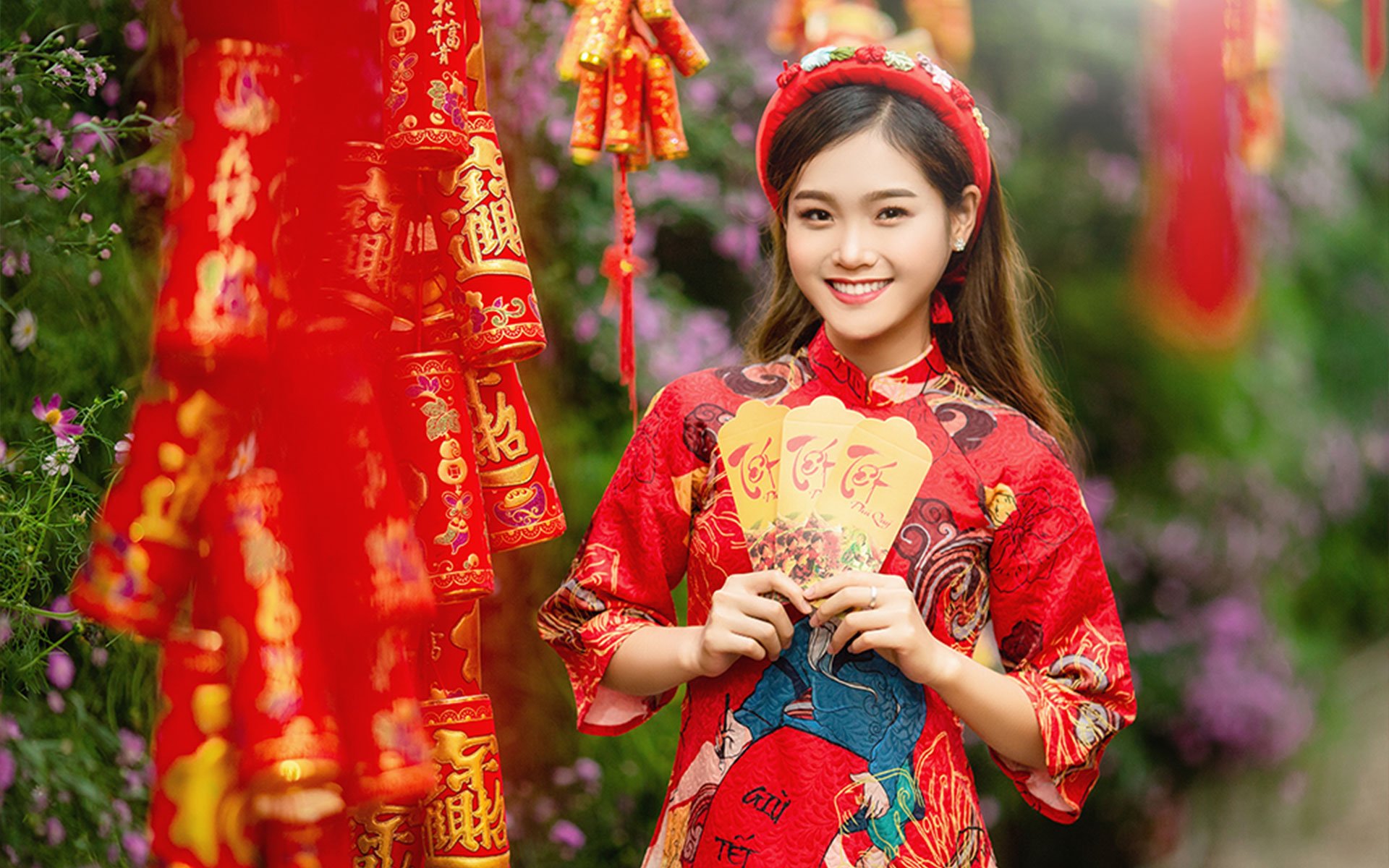
The origin of “Li Xi” or Lucky Money
When and how did the “Li Xi” custome begin? There is no exact answer for these questions but it was widely believed that giving and receiving lucky money was originated from China.
A legend says that once upon a time, evil spirits living in tree hollows always wanted to escape and harm children but were prevented by the gods. However, the gods had to come back to heaven to accept new tasks assigned by the Chief God on the New Year’s Eve, the evil spirits went out in the night time and rubbed children’s heads, making them burst into loud screams and get high fever. Therefore, parents had to stay awake all night to take care of their children. At that time, there was an old couple, which finally had a son after a long time of getting married. They were scared of the fact that the evil spirits might harm their son. One day, several gods were passing by the house of this old couple and knew about the story of evil spirits; they helped them to protect their son. They transformed themselves into bronze coins and ask the mother grabbed them inside a piece of red envelop, put it right under the child’s pillow. That night, the evil spirits came to the house but was scared of the twinkle light from the coins and could not harm the baby. The good story was spread quickly everywhere and since then, people started to put some money into a red envelop and gave them to children as a way to express their love for the kids. And this was when the custom of giving lucky money to children started and has been conitued up until now.
There was another legend saying the “Li Xi” custom originated in China’s Tang dynasty. After Yang Guifei gave birth to a prince, the King gave the newborn gold and silver in a red cover as a lucky charm to protect him against evils.
Even there is not any scientific evidence that “Li Xi” or Lucky Money can bring good luck or not, but surely it creates great happiness to the recipients, whether in the ancient past or in modern times.
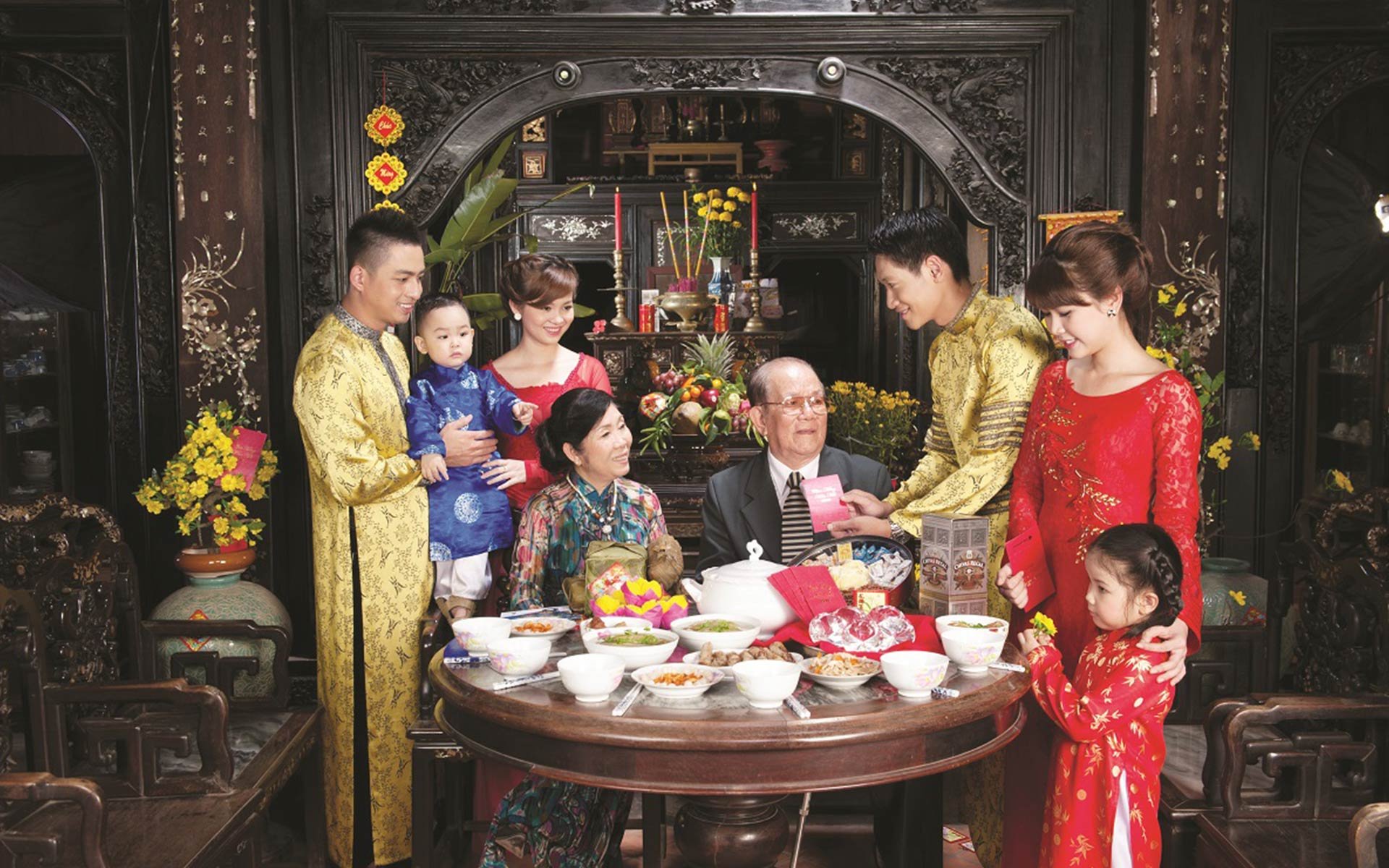
The meaning of giving “Li Xi” or Lucky Money in New Year
When mentioning about “Li Xi”, people often think that is the action of giving money to children to welcome the new age on the first day of Lunar New Year. Even the money inside the red envelop is a small amount, it is considered to bring good fortune to the receiver. The “Li Xi” custom is normally be practiced in three first days, but can even lasts until the 10th day of Tet Holiday.
Besides the money, the red envelope itself also has its own meaning. First of all, the money is covered in the envelop as the way to represent the secrecy and privacy to avoid comparison. Adults want the children to regard “Li Xi” as their wishes of luck and best things happening to the receivers in the coming new year. In addition, red color is considered as the luckiest color in Asian’s beliefs. That’s the reason why this color can be seen in almost traditional festivals, signifies the prosperity and great luck. Therefore, the more “Li Xi” (red envelops) a person gives or receives, the more flukes he/she will gain during the new coming year.
In the past, when living conditions were difficult, adults had to work very hard for enough food, a small “Li Xi” was a great morale boost. Their children considered “Li Xi” in the New Year as their valuable treasures, spent them on only necessary stuffs, which they could hardly have in normal days. Children nowadays are grown up in better conditions with enough food and clothes and entertainment. But that doesn’t lessen the children’s excitement to receive “Li Xi”. Modern parents educate their kids to manage “Li Xi” as their own properties with appropriate manner. Some children only keep a small amount of “Li Xi” to buy toys and give the rest to their parents to pay tuition fees, others give their saving “Li Xi” to charity in the hope of helping poor children.
In addition, lucky money is not just given to children, but also to the elders in the family. When grown-up kids give “Li Xi” to their old parents, that’s the way to show their care for the health of the older people in the family. It’s like a precious gift for a family if grandparents and parents are in good health and live longer with children. On the other hand, the elders themselves also feel very happy when receiving lucky money from their kids because that money was earned by their own efforts, which means that their babies have stable jobs to earn their living.
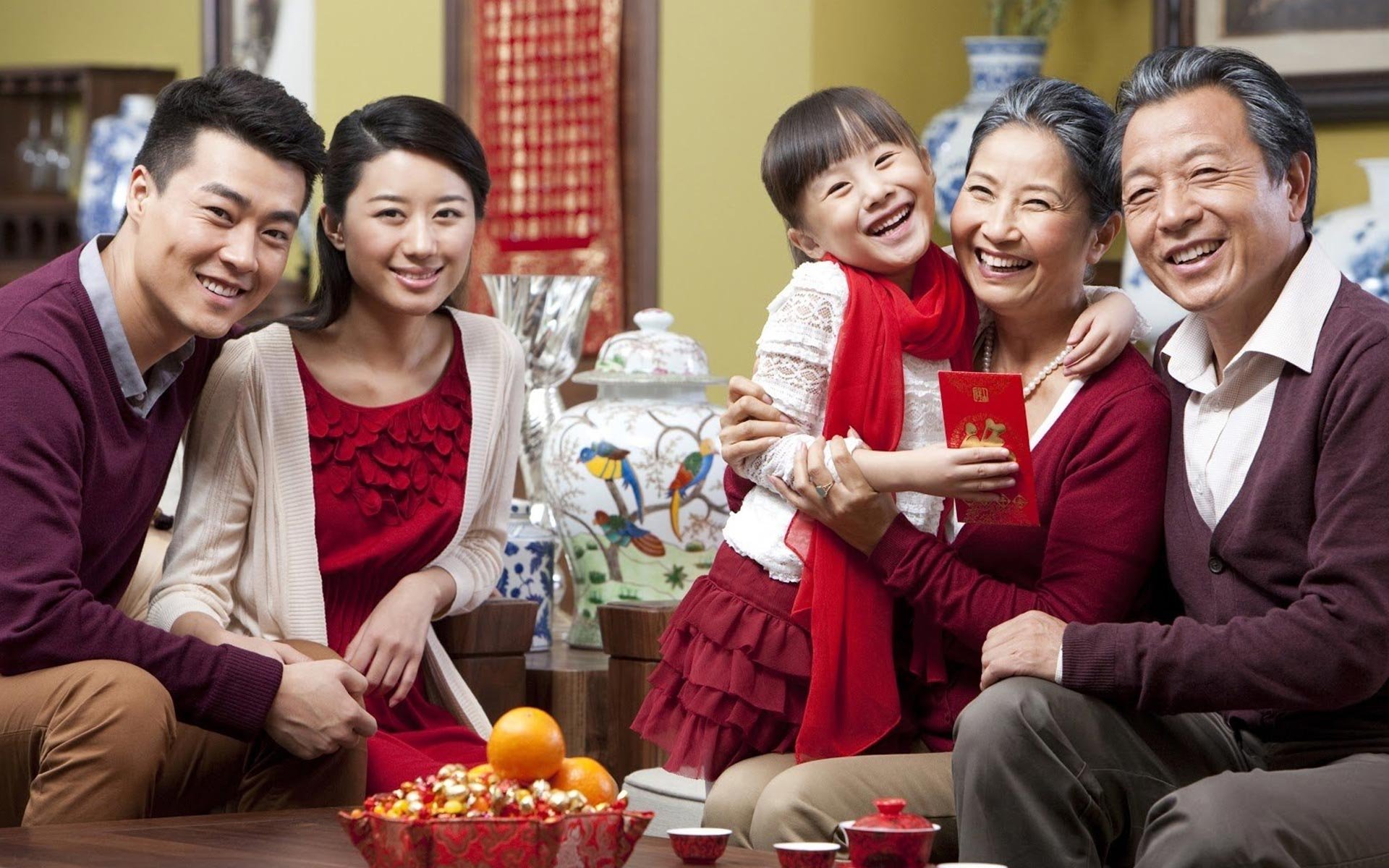
How to give and receive “Li Xi” or Lucky Money?
In the first three days of Lunar New Year, people wear new and beautiful clothes or even traditional costumes. They visit their relatives and friends’ houses, give them the best wishes for health, happiness and prosperity in the new year. After many wishes, people will give “lì xì” (lucky money) to children. In the past, “Li Xi” was given just to the children or elders but now it can be sent to anyone, young or old, because people believe that the more “Li Xi” they give out, the more luck they get back.
Lucky money is wrapped in red envelopes with New Year’s wishes. Lucky money into the red envelop must be the new notes to show your respect to the receivers because the old currency is often considered as unlucky. Morover, new money in Tet Holiday is regarded as the start of a new year, a start of a new adventure.
When receiving “Li Xi”, always use both hands and must avoid opening the envelop immediately to see how much money is put inside as this behavior is very rude in Vietnam culture. As a return to the lucky money you receive, always sincerely say “thank you” to the givers and don’t forget to give them best wishes, too.
“How much “Li Xi” should I put into the red envelop?” is the main concern of the first comers in Vietnam in Lunar New Year and want to practice this interesting custom. Indeed, the amount of money contained in the red envelop depends on the relationship between the giver and the receiver. There is no right or wrong answer to this question. Most importantly, the precious value of lucky money is not evaluated by how much money you receive, instead by the wishes that others give you.
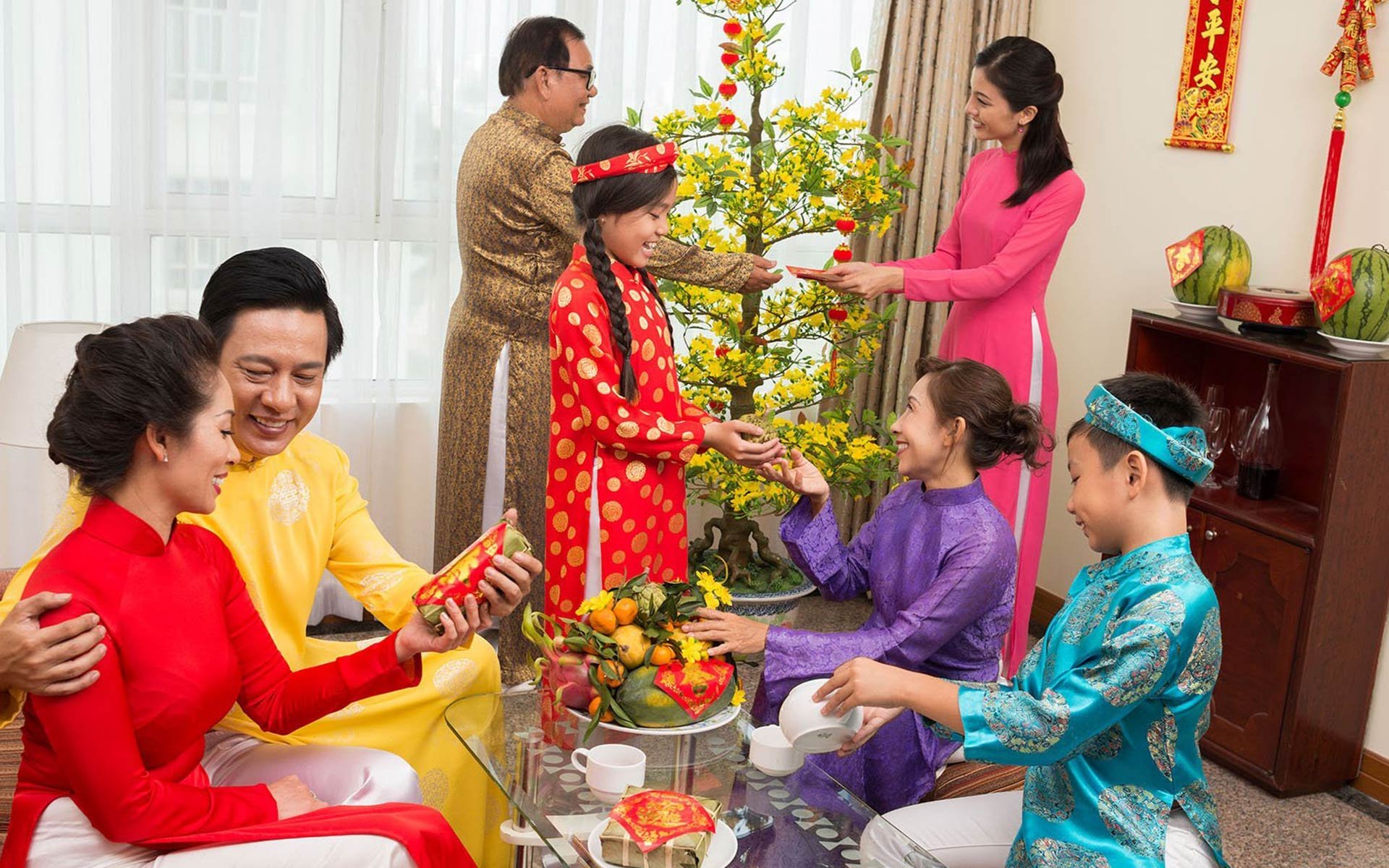
“Li Xi” or Lucky Money in present time
In the past, money inside the red envelop just involved coins. Nowadays, “Li Xi” givers are very fussy about the red envelope and the appearance of the money. People in the middle-aged generation put current VND in the “Li Xi” as a practical gift, which is in circulation. Younger people have a different view of “Li Xi” so they select the lucky money that has not been spent right away but kept as an amulet of luck by the receivers. Some choose 10,000 VND cotton notes as it is called “the queen of paper notes” due to its red color and nice design. Others prefer foreign currency with small notes such as 1 USD or 2 USD. They even carefully choose currency with nice series numbers. The series may have the same last 3, 4 or 5 numbers. The last number can be 68, which sounds like “prosperity” in Chinese. They believe that these kinds of money will bring good luck and happiness to recipients.
In terms of money value inside “Li Xi”, many people want to put bigger amount rather than the traditional little one. There is a Vietnamese saying that the wealthier people are, the more manners were born. When living conditions are getting better, people become richer and they consider Lucky Money as a tool to show their social status and reputation. Or some people just simply believe that as their lives become better and they want to share with their relatives and friends. Moreover, Lucky Money seems a good way for them to express their kindness.
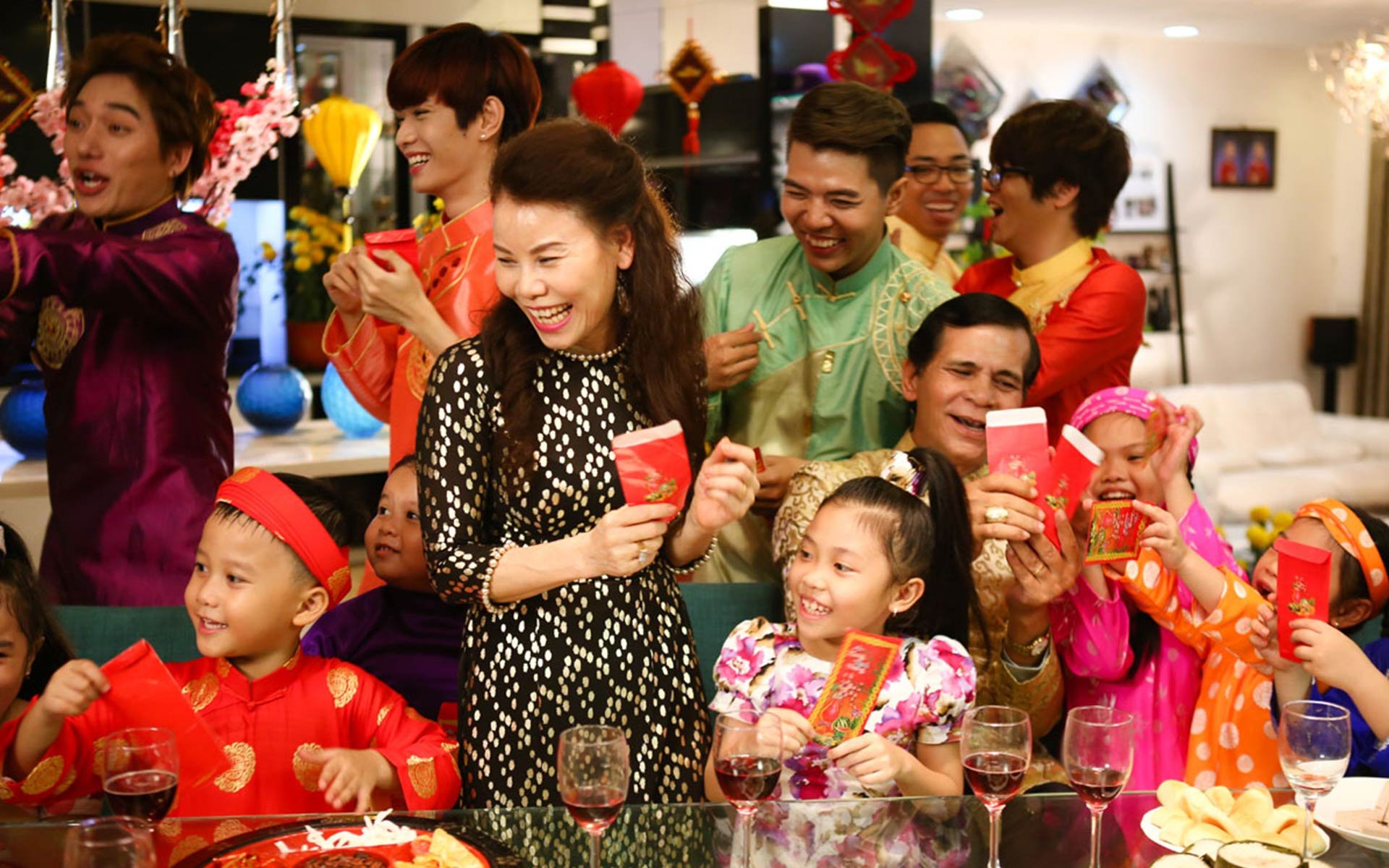
Final Lines
The “Li Xi” custom has changed a little bit to keep up with developing Vietnamese society. However, in old or modern society, “Li Xi” remains as one of the most important customs of Vietnamese people in Lunar New Year. Most importanly, its significant meaning does not lie in the amount of money given but in the hope of the givers for happiness and prosperity for their loved ones in the new year.
Don’t hesitate to plan your next adventure to Vietnam right at the time of our Tet Holiday. Travel Vietnam’s friendly tour guides will help you understand more about “Li Xi” as well as many other interesting customs of Vietnamese people during our New Year occasion.















